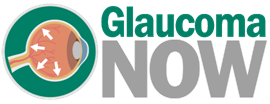Ophtalmologiste, explique ce qu'est le glaucome et comment il affecte la vision d'une personne.
What is Ophthalmologist
An ophthalmologist is a physician who specializes in Eye Care and Vision Testing the medical and surgical care of the eyes and visual system. Ophthalmologists work with patients in the prevention of eye disease and injury. In treating patients an ophthalmologist may also educate them on eye care, glasses and contact lenses, glaucoma, oculoplastics, refractive surgery, pediatric ophthalmology, neuro-ophthalmology, laser eye surgery, canaloplasty, cataract surgery, corneal transplant surgery and vitreo-retinal surgery.
The Canadian Society of Oculoplastic Surgery (CSOPS) represents a qualified group of Ophthalmic Surgeons who have additional training and experience in the highly specialized fields of Eyelids, Orbit, Nasolacrimal System and Facial Aesthetics.
Pediatric ophthalmologists are medical and surgical doctors (Eye M.D.s) who specialize in the eye problems of children American Association for Pediatric Ophthalmology & Strabismus
The purpose of the Canadian Ophthalmological Society is to assure the provision of optimal eye care to all Canadians by promoting excellence in ophthalmology and providing services to support its members in practice.
Patients are often concerned that intravitreal eye injections will be painful or scary. You may feel pressure during the procedure, but not pain. After the first or second procedure, patients generally feel more at ease and are motivated by the fact that they often see improvement of their visual acuity very soon. Following an intravitreal injection, you may feel pressure or grittiness in the eye, slight bleeding on the white of the eye and floaters in your vision. These are temporary and normal. There are patients who will only need a few years of intravitreal injections, but some patients need lifelong treatment.




